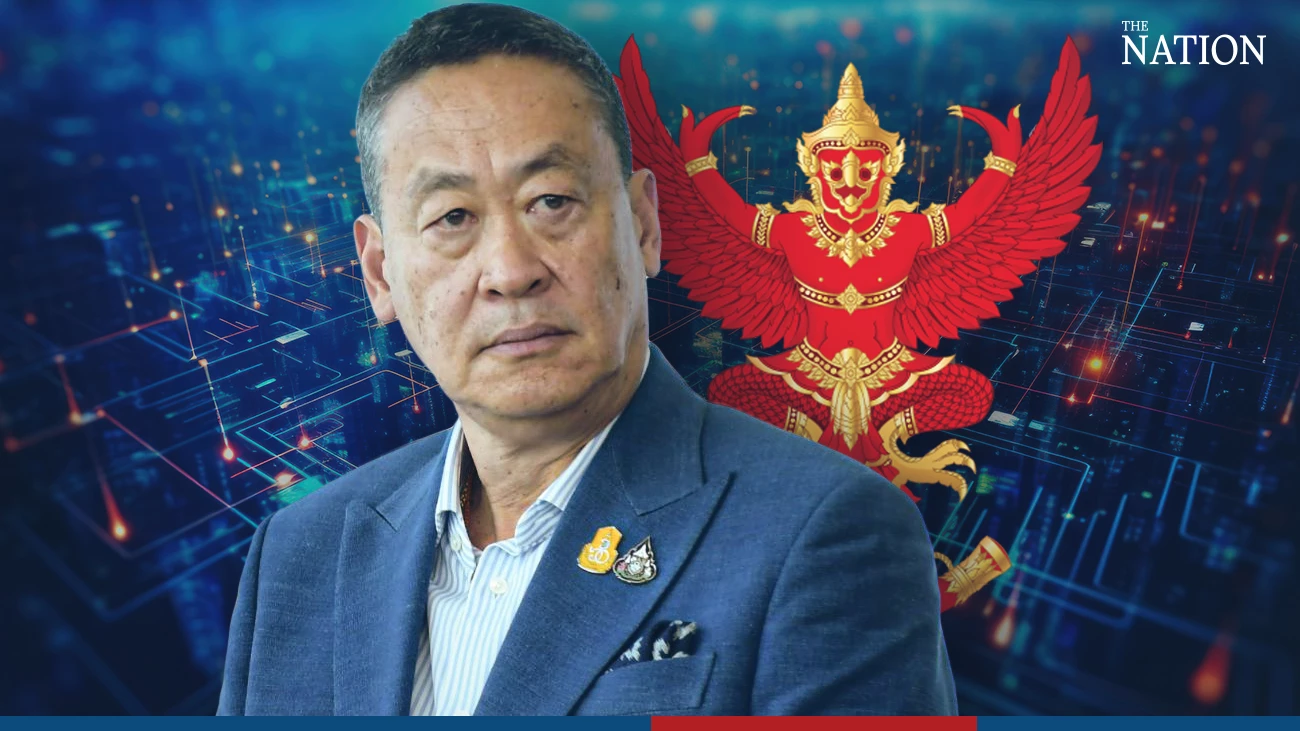
Prime Minister Srettha Thavisin has been asked to help patch rifts in the National Broadcasting and Telecommunications Commission that have been blamed for repeated collapses of NBTC meetings, delaying key public services.
Digital Economy and Society Minister Prasert Chanthararuangthong said he decided to seek help from Srettha to patch the rifts as the telecom watchdog had made no progress in deciding on key measures to protect public interest.
Prasert, in particular, cited measures to act against call-centre gangs, which he said could not be announced due to repeated collapses of NBTC meetings due to the lack of quorum.
Prasert said he decided to seek Srettha’s help after he met NBTC chairman Sarana Boonbaichaiyapruck a few days ago and discussed issues inside the board, including frequent meeting collapses that led to criticisms of the watchdog on social media platforms.
Prasert said he had told Sarana that the NBTC should give priority to tackling people’s grievances, especially dealing with call-centre gangs and cyber-threats.
“So, I told the NBTC chairman I would like the divided NBTC members to hold talks and open their minds to end their conflict,” Prasert said.
“I’ve informed the prime minister of the rifts as the NBTC has failed to work with unity and several issues were delayed pending decisions of the board. And the prime minister is ready to mediate.”
Prasert said the rifts had led to the NBTC being unable to issue an announcement to holders of multiple SIM cards to identify themselves. The minister said the announcement was necessary to fight call-centre gangs.

He said he had learned that the last few meetings of the NBTC had also collapsed due to lack of quorum.
“After the board approves a measure, it will have to be subject to a public hearing for 45 days before it takes effect,” Prasert said.
He said the ministry could no longer wait for the NBTC, so he had invoked Article 4 of the technology crime prevention and suppression act to announce two measures with immediate effect on Tuesday.
The first measure requires owners of SIM cards that were used to make over 100 calls a day to identify themselves to their mobile phone operators failing which their numbers would be suspended.
In another measure, Prasert said users having more than five phone numbers would have to identify themselves within January 11 or they would not be able to make calls.
According to the NBTC Office, 64.8 million people in Thailand are using 94.6 mobile phone numbers. A total of 64.5 million people own no more than five numbers and they combinedly use 85.1 million numbers.
The office said 280,000 people were using between 6 to 100 numbers and combined they accounted for 3.3 million numbers. The office said 7,644 people owned more than 101 numbers, a combined 6.1 million numbers.
From July 5 this year, six NBTC meetings have been called off due to lack of quorum – on July 5, October 4, November 3, November 17, November 28 and December 6.
The meetings collapsed because only the chairman and two other NBTC members on his side – Natthathorn Prohsunthorn and Torpong Selanon – attended the meetings at 9.30am and waited for half an hour, but four other members required for the quorum did not show up forcing the chairman to postpone the meetings.
Meanwhile, it was reported that two measures invoked under the technological crime prevention act have been announced by the NBTC Office after they were signed by the office’s acting secretary-general Trairat Viriyasiriku.
In the first measure, mobile phone operators were ordered to suspend services for prepaid SIM cards that were used to make over 100 calls a a day from December 9. The services could be resumed only after the owners come forward to identify themselves.
In the second measure, owners of more than five SIM cards must register themselves before January 11 or their numbers would be suspended.


